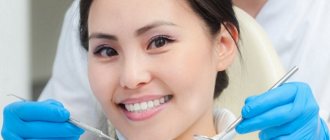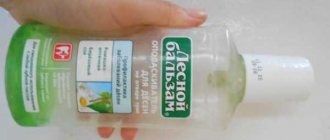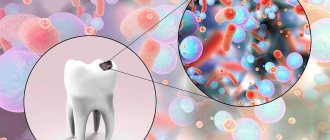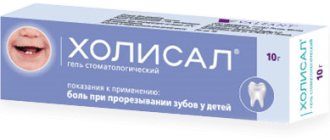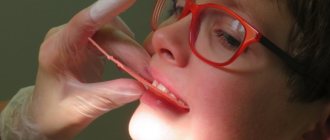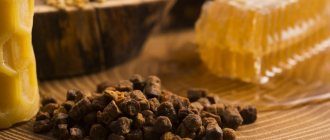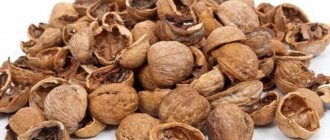Propolis today is used in various fields of medicine, ranging from heart diseases to dental diseases, so it is worth discussing the question of how useful propolis is for teeth. This information seems especially relevant in light of the fact that propolis has been included in all kinds of anti-inflammatory gels, ointments and toothpastes used in dentistry for quite some time. Modern dentists quite often suggest that their patients pay attention to this particular beekeeping product, appreciating its unique antiseptic and wound-healing activity.
Some general information
Propolis or “bee glue” is an incredibly useful and unique product that bees initially began to extract for their own needs. It is called glue because it has an adhesive base (bees use it based on tree resin), and is used by hairy workers to decorate their own homes - sealing small cracks or processing honeycombs.
The healing properties of propolis for gums and teeth are naturally due to the biological composition of this product. It consists of vitamins, minerals, protein compounds, amino acid residues, polysaccharides and those bee products that are produced by bees - royal jelly, honey, bee venom (apitoxin) and wax. This composition gives drugs prepared on its basis a wide range of biological effects, so they can be used to treat several dozen diseases common today.
For reference!
Here it must be said right away that today in folk medicine calamus is also used for teeth, which is a marsh plant and a rather strong natural antiseptic, which made it possible to begin using it in the treatment of dental diseases back in ancient times. Today it is clear that with its help it is possible to stop the growth and development of pathogenic microflora in the oral cavity. At the same time, it has a strong astringent effect, and is also famous for its ability to quickly stop even the most severe inflammatory process. Scientists have found that calamus and propolis enhance each other’s properties, so with the help of these two healing products you can cope with stomatitis, get rid of bad breath, as well as the causes that lead to its appearance, cure periodontal disease and strengthen tooth enamel.
For what dental pathologies can it be used?
- toothache,
- stomatitis,
- damage to the mucous membrane,
- halitosis (bad breath),
- fistula, flux, abscess, cyst, granuloma,
- hyperesthesia, that is, increased sensitivity of the enamel,
- inflammation of periodontal tissues: gingivitis, periodontitis, periodontal disease.
The drug can be used in the treatment of fistula
Let's chew propolis while we have something to eat
It’s worth saying right away that propolis for gums is most useful in its pure form – unprocessed. In this form, it needs to be chewed, and it is recommended to do this with the front teeth, because the embossed surfaces of the back teeth lead to food getting stuck in them, which creates severe discomfort for the patient.
Before use, it is necessary to form small propolis balls of 3-5 grams each, and then use them for chewing. In this form, propolis is most useful for teeth and gums, because it acts directly in the oral cavity. It is recommended to wrap the finished balls individually in parchment paper and store them in the refrigerator.
At first, the ball seems hard, but under the action of the salivary glands it gradually softens and decreases in size, and it is during this period of time that it is most useful. Chewing time may vary for each person, but the process usually takes between 5 and 15 minutes. Treatment of gums with propolis in its natural form should be carried out once a day.
Important!
It must be remembered that the product contains chemically quite inert substances (beeswax), so “bee glue” does not dissolve completely and its remains are not recommended to be swallowed, they must be spat out. However, there is no need to panic when swallowing small pieces, because they will not cause harm to health - the wax is eliminated from the body through the intestines, so propolis for treating gums is completely safe.
Contraindications and possible harm
The healing properties of bee glue do not eliminate the presence of contraindications. Restrictions include:
- allergic reaction;
- diseases of the liver, gall bladder, kidneys, pancreas;
- bronchial asthma, diathesis.
Propolis is not harmful specifically to teeth. Possible side effects are observed with an allergic reaction (itching, redness, burning and fever). If the concentration of the tincture is exceeded, a burn to the gums or mucous membrane is possible.
Bee glue is a common remedy for treating oral problems. Main properties: bactericidal, relieves inflammation and pain. Saturation with a large number of useful substances helps to strengthen, slightly lighten tooth enamel, and eliminate bleeding gums.
Category Hygiene Published by Mister stomatolog
Home remedies with propolis to rinse and strengthen teeth
Particularly effective and affordable is propolis tincture for toothache, which you can either prepare yourself or buy ready-made. The tincture is prepared using two methods – based on alcohol or vodka. The first recipe involves infusing the active substance in alcohol with periodic shaking for 3-4 days. After the specified preparation time, the solution is filtered through gauze into a dark glass bottle and can be used for its intended purpose.
Regarding the second recipe, it is worth saying that it involves preparing the medicine with vodka, but in terms of technology it is not very different from the first option, because you need to take propolis and mix it with vodka (in a ratio of 10 grams per 100 milliliters of liquid). Place in a container with a lid and leave for three days. Upon completion of the infusion process, the medicine is filtered and can be considered ready for use. And propolis tincture for gum inflammation can be used according to any recipe, because its effectiveness does not decrease.
It is worth saying that a tincture of calamus and propolis for teeth is a very effective rinse, and some sources contain information that with the help of this medicine you can not only get rid of dental diseases, but also restore teeth. This theory needs to be tested in practice, but the cost of medicines is not high, so anyone can start using them, especially since one should not forget that prevention is better than long-term treatment.
Comments
I have been using an alcohol tincture with propolis for the second month now as a mouth rinse for gum inflammation. At first it got better, but now it seems to have the opposite effect, everything itches, what should I replace it with?
SS (04/27/2020 at 11:41 am) Reply to comment
- Tinctures with propolis in alcohol or vodka cannot be used for longer than 7–14 days, since the alcohol component dries out the mucous membrane and helps destroy not only harmful, but also beneficial bacteria. Perhaps your oral microflora balance has been disturbed and dysbacteriosis has arisen, but not because of propolis (it does not disturb the microflora), but precisely because of the alcohol component. Contact a dentist who will examine your oral cavity and select a course of treatment procedures and products according to your clinical situation.
Editorial staff of the portal UltraSmile.ru (05/03/2020 at 09:08) Reply to comment
Write your comment Cancel reply
Use of propolis in dentistry
It must be said that dental treatment with propolis is based on the fact that this beekeeping product has a unique spectrum of pharmacological activity, and it is with its help that you can:
- stimulate the process of rapid healing of wounds and scratches in the oral cavity;
- reduces the risk of microbial development, and also prevents the proliferation of candida fungi, which very often begin to multiply in the oral cavity due to improper hygiene;
- quickly and effectively deal with pain;
- improve the condition of the mucous membrane, stop the inflammatory process;
- saturate the gums with vitamins and beneficial microelements.
Considering the mechanism of action of this product in more detail, we can say that it is able to envelop the affected areas with a specific film, thus acting as some kind of protection. Under this film, a regeneration process occurs, that is, the epithelium restores its properties, but at the same time, the “film” has an analgesic effect, so toothache and propolis are incompatible concepts.
Use of propolis in dentistry
Naturally, based on everything that is said above, we can draw a conclusion about how effective propolis is for toothache. However, this is not its only indication for use, because in dentistry it is also used to treat:
- periodontal disease;
- purulent inflammatory diseases of the gums (for example, purulent periostitis);
- stomatitis;
- fistula;
- burns in the oral cavity.
At the same time, it is worth saying that calamus root for teeth (or, more precisely, its tincture) in combination with propolis tincture is recommended for use after tooth extraction in order to prevent the development of the inflammatory process, as well as after dental operations to excise the mucous membrane of the gums.
Clinical researches
Repeated clinical studies have proven that using ASEPTA propolis gum gel for a week can reduce gum inflammation by 31%.
Sources:
- Comparative clinical evaluation of the effectiveness of treatment of traumatic lesions of the oral mucosa IORDANISHVILI A.K. *,** Doctor of Medical Sciences, Professor, Professor of the Department *Department of Orthopedic Dentistry of the Federal State Budgetary Educational Institution of Higher Education “North-Western State Medical University named after. I.I. Mechnikov" of the Ministry of Health of the Russian Federation (rector - Doctor of Medical Sciences Sayganov S.A.); **Department of Maxillofacial Surgery and Surgical Dentistry of the Federal State Budgetary Military Educational Institution of Higher Education “Military Medical Academy named after S.M. Kirov" of the Ministry of Defense of the Russian Federation (chief - Corresponding Member of the Russian Academy of Sciences, Professor A.Ya. Fisun).
- Study of the clinical effectiveness of treatment and prophylactic agents of the Asepta line in the treatment of inflammatory periodontal diseases (A.I. Grudyanov, I.Yu. Aleksandrovskaya, V.Yu. Korzunina) A.I. GRUDYANOV, Doctor of Medical Sciences, Prof., Head of Department I.Yu. ALEXANDROVSKAYA, Ph.D. V.Yu. KORZUNINA, asp. Department of Periodontology, Central Research Institute of Dentistry and Maxillofacial Surgery, Rosmedtekhnologii, Moscow
- The effectiveness of the use of Asept “adhesive balm” and Asept “gel with propolis” in the treatment of chronic generalized periodontitis and gingivitis in the acute stage (Municipal Dental Clinic No. 4, Bryansk, Kaminskaya T. M. Head of the therapeutic department Kaminskaya Tatyana Mikhailovna MUZ City Dental Clinic No. 4, Bryansk
Is there any harm in using propolis for teeth?
In general, propolis tincture for rinsing gums, as well as other dosage forms of this beekeeping product, are completely safe for use, especially in the context of the treatment of dental diseases. However, it is worth remembering that propolis glue is a rather allergenic product, so gum gel with propolis is contraindicated for use if you are allergic to this beekeeping product. Additionally, it must be said that harm from this method of treating dental diseases can be observed in people who have asthma, diabetes or eczema, because in this case the body has an increased level of sensitivity to allergic components, which means it is better to refuse their use.
Contraindications for use
The traditional medicine product should be used with caution, because it can cause an acute allergic reaction, skin rash, itching and Quincke's edema. A high risk of developing allergies is present in those who suffer from eczema, diathesis, bronchial asthma, and diabetes. Treatment with propolis is contraindicated for young children. Bee products should not be used by those who have problems with the kidneys, liver or pancreas.
An allergic reaction can cause angioedema
If you use an alcohol tincture, then strictly follow the instructions for use. You should not rinse your mouth with a concentrated composition, otherwise you will only worsen your condition. Due to the “alcoholic” component, the tincture should not be used by children, nursing women or pregnant women, as if swallowed it can cause poisoning and intoxication of the body.
How to treat a tooth with propolis?
In general, when asking the question of how to cure a tooth with propolis, it is worth saying that in any case, you should start by using propolis tincture to rinse the gums, which must be diluted in a glass of water (the ratio is two teaspoons of tincture per glass of water) and rinse several times a day. It is worth remembering that after rinsing you should not eat anything for half an hour, and it is better to refuse water.
At the same time, when treating a tooth with propolis, it is worth remembering that if this product is available in its natural form, if a hole is found in the tooth, you need to put a propolis ball there, or you can do the same manipulation with propolis ointment, which is sold ready-made or prepared independently .
It is important!
It is necessary to remember that over time, teeth deteriorate and the enamel wears off; moreover, caries can contribute to this process, the development of which is quite difficult to stop. And here preparations prepared on the basis of beekeeping products will come to the rescue, because it is known that propolis tincture with alcohol for teeth is incredibly useful precisely for the purpose of preventing the development of dental diseases. Propolis, due to its rich composition, creates a film on tooth enamel that protects teeth from the destructive effects of a huge number of irritating factors. Moreover, propolis is also useful against caries because it improves the condition of the mucous membrane of the gums, thereby reducing the risk of tooth loss. However, unfortunately, it will not be possible to grow a tooth by using this medicine.
What not to do when using propolis
Do not use concentrated alcohol tincture for rinsing and lotions. You should also not leave propolis residue in your mouth overnight, hoping that the positive effect will be prolonged. Do not forget that, among other things, it contains sugar, and this is an excellent source of food for pathogenic bacteria that provoke the development of caries. If you used a beekeeping product in its natural form, then before going to bed, be sure to thoroughly brush your teeth with a brush, paste, rinse, floss and irrigator.
How is propolis used for gums?
Speaking about how to use propolis for gums, it is worth paying attention to the fact that in this case the most effective method of treating and preventing dental diseases, which also affect the gums, is rinsing. Propolis rinses perfectly remove plaque, which usually accumulates in the area of wisdom teeth. In its natural form, using propolis mass, you can remove the film that appears in the oral cavity due to thrush. Continuing the theme of rinsing, with the help of tincture you can cure bacterial sore throat, as well as stomatitis, which often occurs against its background.
Regular use of propolis preparations can reduce the sensitivity of the gums and teeth, and also serves as an excellent prevention of periodontal disease and bleeding gums, and, which is a rather pleasant bonus, helps make teeth whiter. And at the same time, it is worth saying that propolis does not destroy tooth enamel.
Propolis oil Apigrin for toothache
- one of the few herbal remedies that is recommended and used by doctors for the treatment and prevention of various diseases.
- affordable price, the closest analogues are 3 times more expensive
- certified
- Suitable for both pregnant women and women while breastfeeding, as well as children
The patented technology for manufacturing the drug makes it possible to use up to 100% of all the medicinal properties of propolis, which greatly distinguishes this drug from other representatives in this segment.
Pharmacological action
- Anti-inflammatory. It is caused by the inhibitory activity of flavonoids (kaempferol, pinobankasin, pinocembrin, chrysin, galangin, pinocembrynhalcone and others), clerodan diterpenes, isomers of 2-clerodanditerpene, coniferyl alcohol, caffeic 2 acid and its esters on the synthesis of prostaglandins. As a result of the action of the drug, the synthesis of prostaglandins, which provoke inflammatory processes, stops.
- Painkiller. Based on the activity of propolis essential oils (close in structure to novocaine - a group of local anesthetic drugs). Experimental and clinical studies have shown that local analgesic activity is 5.2 times greater than novocaine.
- Antibacterial. Provided by the action of benzoic and cinnamic acid, essential oils, kaempferol, pinobankasin, pinocembrin, chrysin, galangin. Acids are also actively used in antiseptic and antifungal preparations. Active components inhibit the proliferation of microorganisms, stopping the division of bacterial cells and causing destruction of the bacterial cell wall.
- Antifungal. Based on the fungicidal action of flavonoids caffeic acid and allicin against a wide range of fungi (candida albicans, trichophyton rubrum, microsporum canis, etc.). Activates cellular immunity reactions, promotes activation of phagocytosis of macrophages. [
- Antipruritic and anti-allergenic. Caused by the ability to block calcium channels in mast cells. Kaempferol, pinobankasin, pinocembrin, chrysin, galangin block the channels and prevent the release of histamine (histamine is responsible for immediate allergic reactions accompanied by itching).
- Regenerative and strengthening. Exfoliating the surface layers of the epidermis, clearing the secretions of the sebaceous and sweat glands, increases the firmness and elasticity of the skin, restores tone and increases skin turgor. . In modern medicine, benzoic and cinnamic acid are used to treat skin diseases. These acids are found in preparations for mycosis and trichophytosis.
- Nutritious. Based on the action of terpenoids: a-acetoxybetulenol, isovaline, bisabolol. They contain oxygen in their structure and participate in the formation of various enzymes, acids and a whole group of vitamins. Among the most important are vitamins D, E and K. Among the most important nutritional properties of the drug, it is worth noting: restoration of cartilage and bone tissue, nutrition of fascia, subcutaneous tissue, hair, nails, etc.), as well as evening out skin color, elimination of excessive pigmentation.
Go to: propolis oil
For whitening
As mentioned above, rinsing teeth with propolis tincture not only allows you to get rid of dental diseases, but also helps whiten tooth enamel. You should not expect that your teeth will become just snow-white, as they say - as in advertising, but given the fact that the propolis mass cleanses the enamel of plaque and pathogenic microflora that can develop in the oral cavity due to poor hygiene, you can expect that that your teeth will become one or two shades lighter.
You can also add a few drops of propolis alcohol tincture for teeth to toothpaste, which will enhance the whitening effect.
Where can I buy?
Naturally, almost any traditional medicine can be prepared independently by first purchasing all the necessary ingredients, but experts recommend buying them from trusted manufacturers, because in this case the effectiveness of treatment will be as high as possible. To strengthen the gums, propolis should only be of the highest quality, because it will only be useful if it was prepared from high-quality processed propolis mass, which was not treated with any chemicals. Some beekeepers neglect this rule, and medicines made from low-quality raw materials are toxic for humans and prohibited for use.
The highest quality and healthiest propolis tincture for gums and teeth can be purchased at the “Veselyi Shershen” apiary, whose employees are personally responsible for the quality and safety of each medicine produced. Reviews about the medicines produced at this apiary are only positive, which is a direct confirmation of their effectiveness, and the cost of the medicines is quite affordable.
Sincerely, family apiary 'Jolly Hornet'
